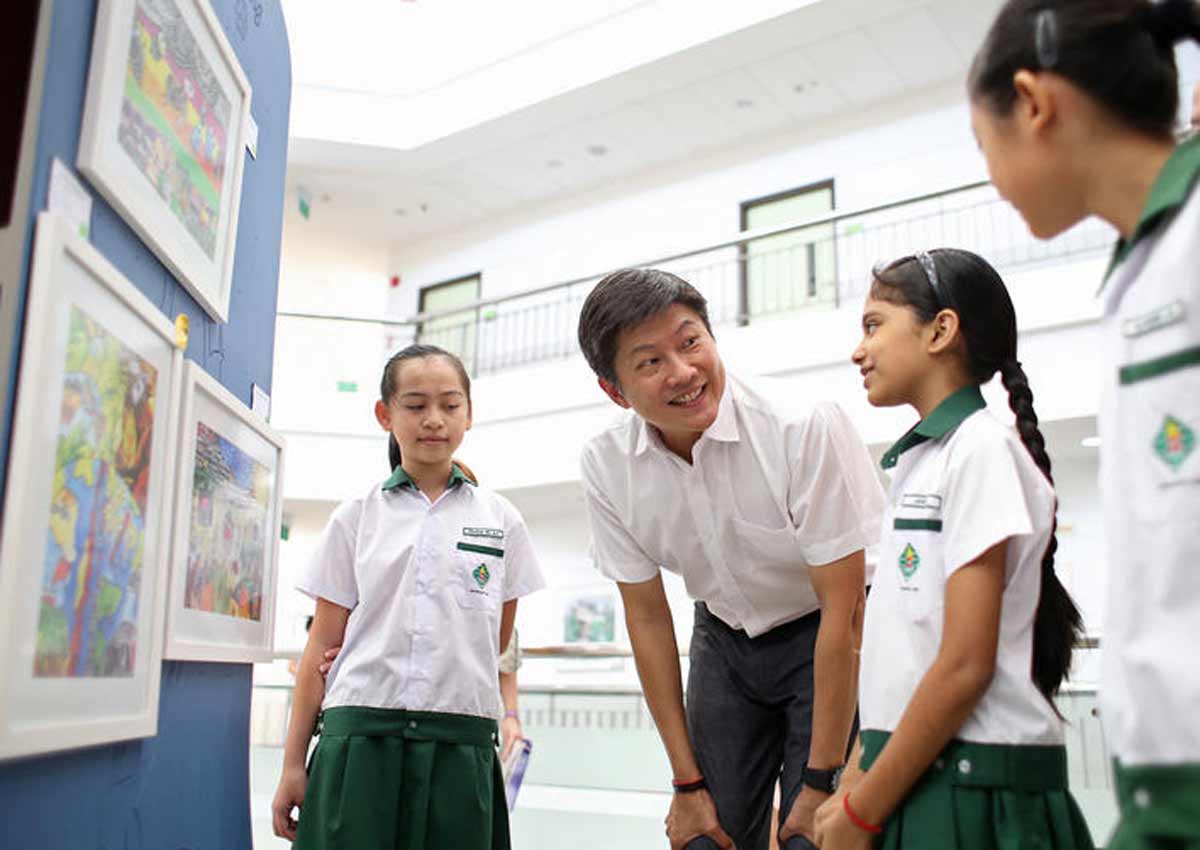Singapore schools are primarily for Singaporean children, and some costs have to be recovered from non-Singaporean students to be “fair” to taxpayers, said Acting Education Minister (Schools) Ng Chee Meng yesterday at a dialogue.
He was commenting on fee hikes, which were announced last week, for non-Singaporean students in local schools.
The increases, which take effect next year, range from $20 to $60 a month for permanent residents (PRs), and $20 to $150 a month for international students at primary and secondary schools and pre-universities. For instance, international students not from Asean countries will have to pay $1,300 a month next year to attend junior colleges and centralised institutes, up from $1,150 currently.
“Our schools are basically set up to run for Singaporean children,” said Mr Ng. “For permanent residents and international students, we do differentiate our school fees.
“We do have to make sure that we are fair to the rest of Singaporeans who are taxpayers,” he said, adding that some of the costs would have to be recovered from PR and international students.
Mr Ng, who was on his first ministerial community visit to Nanyang division yesterday, was speaking at a dialogue with about 250 residents and students at the Nanyang Community Club in Jurong West.
At the event, he called on students to study hard and play hard but, above all, to retain the joy of learning in all that they do.
The Education Ministry and the schools are taking “first steps” to reduce the overemphasis on academic results, said Mr Ng, in response to a question from a student about the importance of academics.
“Academics remain important… because they develop the mind,” he said. “But studying hard does not mean you need to overemphasise on results. The learning journey, in my view, is equally important.”
He added that other aspects of education, including values learning, are important too.
Mr Ng also touched on the revamped Primary School Leaving Examination scoring system, which will no longer be based on how pupils perform relative to their peers. He said one reason for the revamp is that pupils can have more time to explore other interests.
He hopes children can help one another and celebrate successes together. “We also want to promote a more collaborative learning where you and your friends can study together, hold hands together, play together and succeed together.”
Housewife Serene Phua, 45, who has two daughters aged 16 and 18, said: “It was good to find out from the minister himself what he thinks of the education system. I am glad that the system is moving away from results to focus on other areas such as values.”

This article was first published on Oct 16, 2016.
Get a copy of The Straits Times or go to straitstimes.com for more stories.






